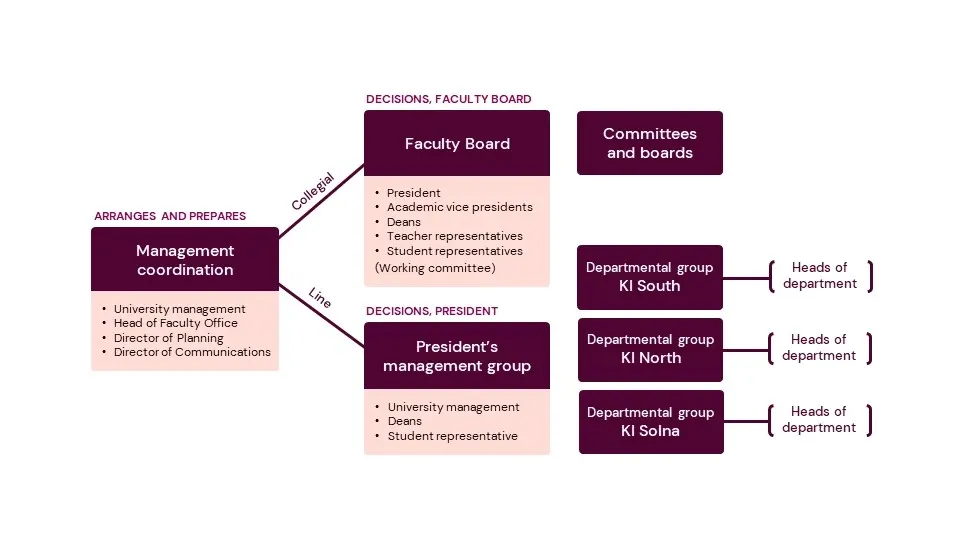Working procedures of the KI management organisation
At KI, cases and decisions are primarily prepared by line managers or a collegial body. This page is a general description of how the university management proceeds as regards both line and collegial decisions.
At KI, decisions are primarily made by line managers or a collegial body. Other decisions are made by the KI University Board (Konsistoriet). Who or which body decides what is explained in the Higher Education Act, the Higher Education Ordinance, the Board’s rules of procedure, KI’s organisational plan, the President’s decision-making procedures and delegation rules, and the Faculty Board’s decision-making procedures and delegation rules.
The cases processed “in line” and decided by the President concern issues relating to, amongst other matters, KI’s official administrative tasks, leadership and the working environment/health & safety.
The “collegial” cases are decided by the Faculty Board and its subsidiary bodies and concern issues relating to, amongst other matters, overall, strategic decisions on quality work in education and research.

Management coordination meeting
In order to sort out and prepare both collegial and line-related issues and cases, the management group, which includes the university management (president, vice-president and university director) as well as the director of planning, head of faculty office and director of communications hold regular meetings. Rather then being a forum for decisions, these meetings channel collegial matters to the Faculty Board and line matters to the president’s management group or direct to the president.
President’s management group and line decisions
The president’s management group comprises the university management, the deans of KI’s three departmental groups and a student representative. The group prepares and discusses issues and cases for the president or successive line managers to decide upon in accordance with the prevailing steering documents at KI.
Faculty Board and collegial decisions
The Faculty Board comprises the president, three academic vice presidents, three deans, three faculty representatives and three student representatives. The Faculty Board decides on collegial issues and cases with the support of a number of committees, councils and boards. Issues and cases to be dealt with by the Board are prepared in advance by a working committee.
The committees for Higher Education, Doctoral Education and Research are preparatory bodies for the Faculty Board. Each committee comprises an academic vice president, six faculty representatives, three student representatives and union representatives.
The Infrastructure Board and Docent Committee are examples of support bodies for the Faculty Board.
